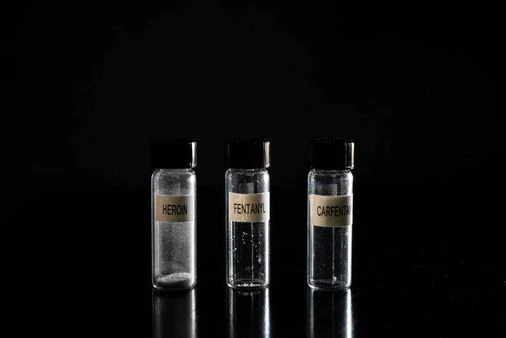
12 Jun The government is failing on the fentanyl fight
Three kilograms of fentanyl is enough to kill everyone on game day at Foxboro and the Garden combined. Yet three kilograms, or about six-and-a-half pounds, is how much fentanyl was confiscated from three Boston drug traffickers arrested a few weeks ago as part of a sprawling law enforcement investigation.
You probably didn’t even hear about these arrests, despite the potentially tremendous tragedies they averted. That’s a sign of how pervasive the opioid epidemic remains in our region, despite years of efforts to turn the tide.
Last year, I wrote a column in the Globe calling on our lawmakers to take proactive steps to curb the flow of illicit fentanyl into New England. We’ve seen significant progress since then, most notably the federal passage of the Synthetics Trafficking and Overdose Prevention (STOP) Act. But this month’s news makes it clear that considerable work remains.
The STOP Act passed Congress with broad bipartisan support and was signed into law in late October. However, nearly eight months later, the federal agencies tasked with its implementation – namely, the US Postal Service and the Department of Homeland Security – have failed to satisfy a legal requirement to file implementation reports to Congress. The STOP Act required two such reports, one by Dec. 24, 2018, the second by April 24, 2019. They have not been submitted. More than five months after the first deadline and two months after the second, it remains unclear whether any documents at all have been given to Congress.
We do have reason to suspect those agencies are falling short of the law’s requirements.
Prior to the passage of the STOP Act, more than 1.3 million international packages reached the United States through the Postal Service daily without advance electronic data (AED) — basic security information including the shipper’s name and address, the package’s weight, and a description of its content — that could help law enforcement
identify packages containing illicit, synthetic, or counterfeit drugs from abroad. Although AED had been required on all inbound international packages shipped by private couriers since the enactment of the Trade Act of 2002, this information was not required on international packages delivered by the US Postal Service until the STOP Act became law.
Criminals have been exploiting this vulnerability. A congressional investigation and subsequent report by the US Postal Service’s Office of the Inspector General confirmed last year that drug traffickers recommend shipping opioids through the Postal Service to avoid interdiction. Further, DEA Special Agent for New England Brian Boyle recently said that illicit opioids are “being shipped unknowingly by USPS from China. We are seeing a decent amount of fentanyl that comes in through the mail.”
The STOP Act mandated that the Postal Service require AED on all packages from China, and 70 percent of packages overall, by the end of 2018. Yet in January 2019, the Postal Service and Customs and Border Protection were receiving AED on only 76 percent of packages from China and 57 percent of international packages overall. That’s according to an April, 2019, letter from US Senators Rob Portman, Republican of Ohio, and Tom Carper, Democrat of Delaware, to the postmaster general and customs and border protection commissioner.
Meanwhile, fentanyl-related overdose deaths continue to rise in Massachusetts, and drugs continue to pour into our communities from abroad. This is unacceptable. Lawmakers need to exercise their oversight authority to ensure the laws are enforced.
If we’re not doing everything we can to keep deadly synthetic drugs out of our country and our communities, we’ll never see an end to this epidemic.
Juliette Kayyem, a professor at Harvard’s Kennedy School of Government, is a former assistant secretary at the Department of Homeland Security. She is a senior adviser for Americans for Securing All Packages.
[ad_2]
Source link



No Comments